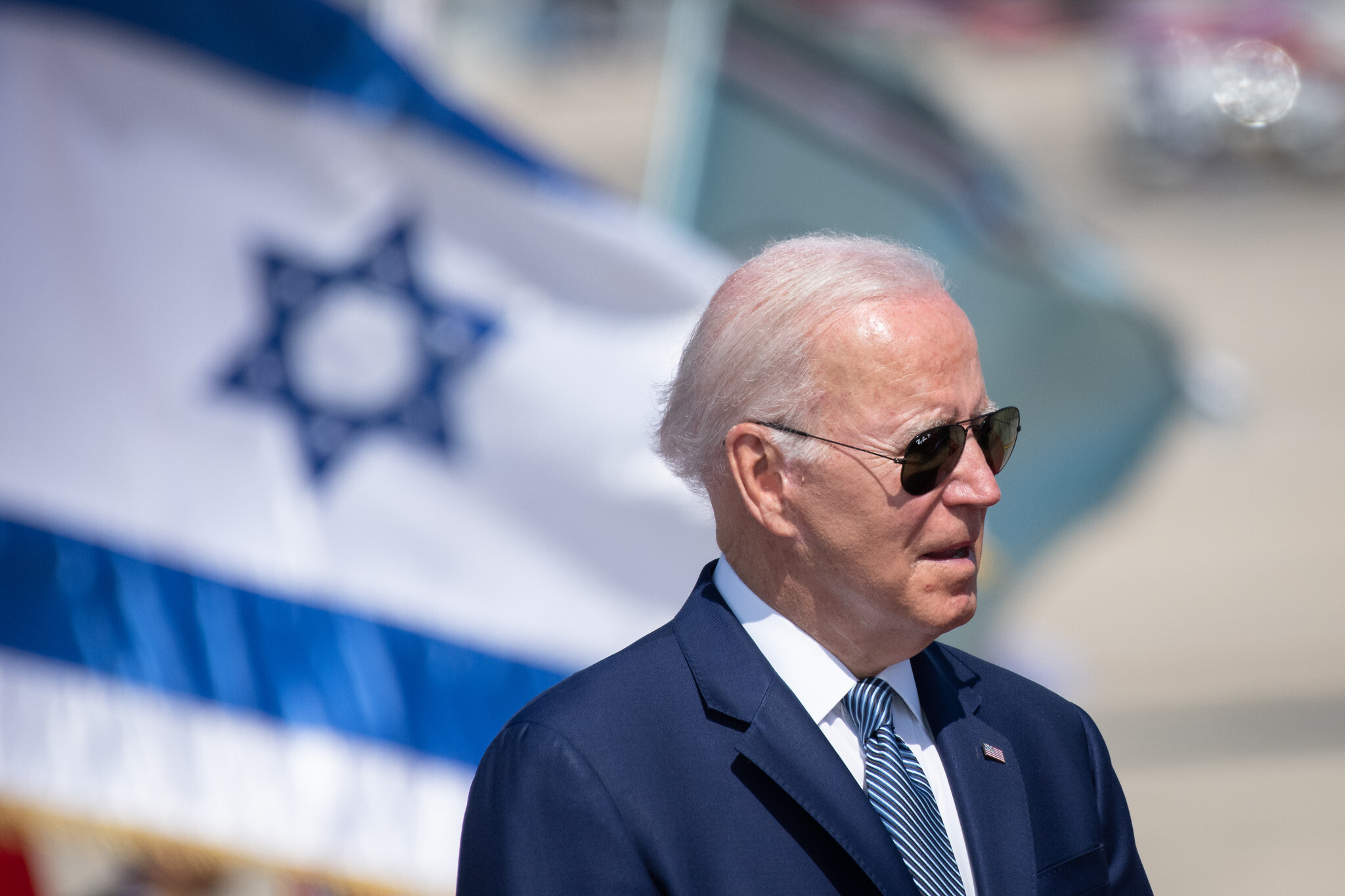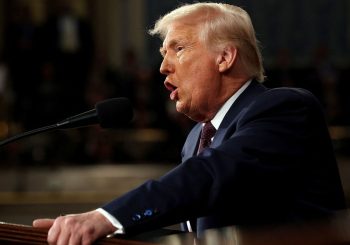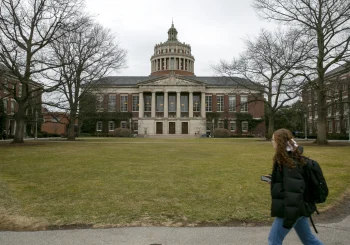“I did say and I say again, you need not be a Jew to be a Zionist.” Those were the words of US President Joe Biden, a devout Catholic, to a group of Israeli officials upon arriving in Tel Aviv on 13 July 2022.
This statement, made proudly in reference to himself, is not one Biden was making for the first time. In fact, he made it twice before: At the Jewish Federations of North America General Assembly in 2014, and even earlier in 2007 in an interview on American-Jewish cable network Shalom TV.
Biden is no stranger to repeating striking statements in support of Israel. As early as 1986, he stood on the Senate floor representing the state of Delaware and declared that “were there not an Israel, the United States of America would have to invent an Israel to protect her interests in the region” – a statement he repeated nearly verbatim in 2014 as Vice President.
Among the members of the United States’ political establishment, particularly those less connected to the gradually changing international rhetoric around Israel, vocal and unconditional support for the state of Israel is not only not considered a morally questionable political standpoint, but referred to as no less than a moral obligation.
Decades prior even to the establishment of the state of Israel on Palestinian land in 1948, American presidents have been expressing support for the Zionist movement.
Wartime president Woodrow Wilson, who was in office when the Balfour Declaration – a public letter composed by the British Foreign Secretary in 1917, declaring Britain’s support for a “national home for the Jewish people” in Palestine – was published, said in response to Balfour that “The allied nations with the fullest concurrence of our government and people are agreed that in Palestine shall be laid the foundations of a Jewish Commonwealth.”
Another wartime president, this time the incumbent during the Second World War, Harry Truman, said in 1948: “I had faith in Israel before it was established, I have faith in it now.”
After him, the vast majority of US Presidents are on record giving their full and unwavering support not only for Israel as an ally, but for the Zionist endeavour in itself as a nationalist movement.
It is clear, then, that the Zionist movement holds a unique and curiously sacred place, not only amongst US presidents past and present, but even amongst vast numbers of the American people. To fully understand the curiosity of this phenomenon, one must begin by defining Zionism itself.
Simply put, Zionism is the “Jewish nationalist movement that has had as its goal the creation and support of a Jewish national state in Palestine.” The word ‘Zionism’ itself derives from Mount Zion, a hill in Jerusalem that carries great significance in the Jewish faith. That is not to say, however, that Zionism itself is a religious movement.
Considered the “founder of modern Zionism and the visionary of the Jewish State,” Austro-Hungarian journalist Theodor Herzl “spoke neither Hebrew or Yiddish, had no Jewish education, and was [..] thoroughly secular.”
To Herzl, Palestine as a destination was not integral to the establishment of a national home for the Jewish people. As a matter of fact, prior to the publication of his seminal work, ‘The Jewish State’ in 1896, parts of South America and East Africa were also candidates to be seriously considered. It was not until the Zionist movement grew to include Eastern European Zionists who were “attached to the biblical Land of Israel,” that the Zionist movement began to take the form we are more familiar with today.
Still, the religious narrative associated with Zionism was superimposed on this nationalist movement due to the biblical connotation of the term, making Zionism an article of faith for some Christians, particularly Evangelicals, in the United States, where the idea is viewed as a reflection of America’s own founding narrative as a promised land, a shining city on the hill.
In fact, as Biden said last week in Tel Aviv, there is no necessary correlation between Judaism and Zionism, but this is a statement that goes both ways. While one need not be Jewish to be Zionist, one need also not be Zionist if one is a Jew. As a matter of fact, historically, there has been strong opposition of the Zionist movement in the Jewish community.
As the Zionist movement emerged, particularly prior to the plight of the Jewish people in Europe in World War II, highly devout Orthodox Jews, as well as secular socialist Jews were opposed to the idea of a Jewish state.
The former group were specifically opposed to the idea of a Jewish state in Palestine, as “the idea of returning to the land of Israel en masse before the Messianic era was presumptuous if not blasphemous”, while the latter group did not believe it possible to create the just nation Zionists promised in Palestine.
There were also Jewish communities that were more attached to their national identities in Europe or the United States, and considered Zionism “an implicit rejection of their claim to be fully integrated into the countries in which they lived.”
The significance of this history is that it shows that Zionism, even among Jewish communities around the world, is a contested and controversial notion. Many, Jews and non-Jews alike – even those who accept the reality of Israel – see it for the settler colonial movement it is, and recognise its disregard for the fact that the land it settled was already populated, and the connotation of coercion, displacement, racism, and violence it carries among millions.
But these aspects appear to be overlooked by politicians like Joe Biden. It is rare to see elsewhere in the world that a person neither living in nor originating from a country is not merely supportive of its nationalist movement, but so affiliated with it that they describe themselves not as a supporter or a sympathiser, but as completely adherent.
Developments such as the recent uncovering of war crimes committed by Israel, forced evictions in Jerusalem and elsewhere, and human rights organisations’ designation of Israel as an apartheid state have been impacting US public opinion for over two decades. As a result, movements with more critical views of Israel’s history and practices have been emerging amongst Jewish communities, in universities, in religious communities, and minority communities, transcending the question of Zionism that may have been more relevant in Biden’s generation.
Subscribe to the Egyptian Streets’ weekly newsletter! Catch up on the latest news, arts & culture headlines, exclusive features and more stories that matter, delivered straight to your inbox by clicking here.






Comments (0)